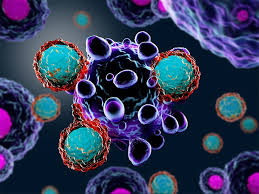Different Types of Immunotherapy for CancerPosted by Radmin on February 29th, 2020
Immunotherapy isn't a one-size-fits-all treatment. Cancer types behave in different ways, and each of them requires a certain approach to medications and care procedures. Immunotherapy (also called immuno-oncology) is a treatment that uses the natural powers of your immune system to fight diseases, including cancer. It utilizes substances made by your body or a laboratory to improve or restore defenses. But, not all immunotherapies work the same way. Some focus on boosting your overall immune system, while others teach it to attack cells found in tumors. Each type has different benefits and is used on certain forms of cancer. Read on to learn more about the various procedures of immuno-oncology. Checkpoint InhibitorsYour immune system spots invading molecules, such as bacteria and viruses. Apart from that, it can identify which cells to protect. To keep your body's defenses in control, it has molecular brakes called checkpoints. Cancerous tissues that make high levels of proteins can turn them on and off so they can hide. Checkpoint inhibitors are drugs designed to release these brakes so that your immune system can attack the cancer cells. These medications can lead to some side effects, including fatigue, cough, nausea, and loss of appetite. It can also cause problems in the lungs, kidney, intestines, and other organs. Adoptive Cell Therapy (ACT)ACT strengthens the natural cancer-fighting power of your body. The process is similar to blood donation. T-cells are removed from your blood and then grown in a laboratory to multiply. They can also be reengineered, so it's easier for them to track down and attack cancerous tissues. There are two types of ACT that can treat forms of blood cancer. These procedures are:
Cancer VaccinesThis is a form of immunotherapy that can help teach the immune system to recognize and eliminate cancer cells. But, since they closely resemble the normal ones in the body, generating an effective vaccine requires more sophisticated and elevated approaches. Cancer vaccines can help:
With advanced medical developments, cancer treatments are becoming more effective and showing positive results. Immunotherapy CE also plays a big part in its research and in helping doctors discover new and innovative ways to fight this disease. Like it? Share it!More by this author |



